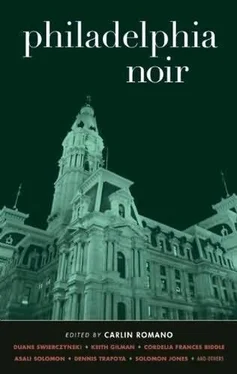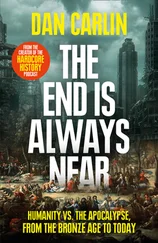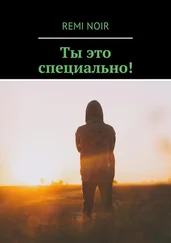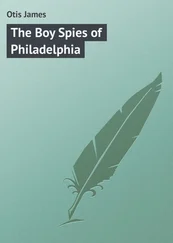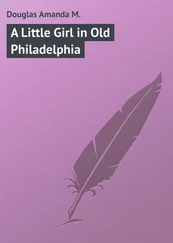“Now!”
He glanced over at the green-eyed girl, who was staring at him with a puzzled expression. She seemed to be wondering, Why aren’t you giving him what he wants?
Lonergan thought: I’ll show you why.
He stood up and reached toward his hip, mimicking a draw. “Police officer,” he said. “Drop the whip or I’ll shoot you down.”
The bandit shook his head as he took long steps backward. “I’ll cut off your head before you even-”
Before the bandit could finish, Lonergan pumped his legs and started to lunge. Then a violent jolt as the El pulled into Church Street made Lonergan stumble. The bandit retreated a few steps. The center door slammed opened. Lonergan looked up just in time for the bandit to give him a face full of the whip.
Someone screamed-it may have been Lonergan. He didn’t know. All he felt was searing numbness followed by the intense heat of the slash. Around him the shock-sobered passengers gathered themselves together and fled the car, crying out for the operator to stop the train. Either he didn’t hear them or didn’t care, because soon after the center door slammed shut again.
Lonergan heard the bandit cry: “MY MONEY!”
The little man with the crooked bow tie-he must have walked off with the sack. Maybe bow tie would do the right thing and return the stolen items to his fellow drunken passengers. Or maybe he’d toddle down to the street level and do his own disappearing act.
The El jolted forward. Lonergan watched as drops of his own blood began to streak across the floor of the car.
“I’m going to cut you apart,” the bandit said.
A woman’s voice cried out: “Clayton, no !”
Lonergan glanced to the right. It was the green-eyed girl, still here, perched on the rattan bench. Why hadn’t she left with the others?
Then all at once he knew.
The bandit was coming at Lonergan now, cracking the whip across the seats. Lonergan didn’t have a strategy. He merely reacted. Whip be damned-he lunged for the bastard.
The two of them stumbled backwards into the center door. Made impact. Glass spiderwebbed behind Lonergan’s body. Lonergan could smell beer on the man’s fevered breath. He was skinny but strong. The El start to slow down again. Orthodox-Margaret station, coming up.
Lonergan gathered a fistful of the bandit’s duster, put his foot against the wood, and pushed forward. They spun until they collided with the center door opposite. The glass, again, cracked-and the bandit went partially through it. Shards rained down on the track. Lonergan drove a fist into the bandit’s face. Then again. And again. And again. The train stopped, jolting both of them to the left. The center door opened.
The bandit pulled himself free, crashed to the ground, and then scrambled backwards on the platform, leaving the whip in Lonergan’s hand. Lonergan took two steps back then fell to the floor of the car. His face was no longer numb. The pain was starting to appear in deep, angry throbs. He felt nauseous and dizzy.
By this time the conductor had gotten the hint something was wrong. Maybe he saw the bandit scrambling for the concrete steps leading to the street. The El idled at the station, doors open. Night air blast-freezing the interior of the car.
Lonergan glanced up at the green-eyed girl, who’d been left behind. He felt hot blood run over his jaw and down his neck.
“Seems Clayton’s left you,” he said.
The girl appeared afraid now.
“So you’re the lookout, I suppose. Did you follow someone from one of the gambling houses? Did one of them hit it big tonight?”
She wasn’t looking at Lonergan. She was looking at the whip in his big hands. If Lonergan peeled off her shirt and saw her bare naked, what would he see? You ride that train or I’ll hide you again, you bitch.
“What are you going to do?” she asked softly.
It was a good question. What should he do? He wasn’t wearing the bluecoat. He didn’t have his gun. He wasn’t in his district. He still had his two bucks in his front pocket. He didn’t have to do a thing.
After a while the operator, a florid-faced man, came rushing into the car, asking what had happened. The green-eyed girl made a small cry as she rushed out of the car and ran across the platform. Lonergan said nothing. He listened to the rapid clicking of her shoes on concrete as they faded away.
But he wanted to tell her, Stay with me.
He wanted to tell her: You don’t understand. I’m your guardian angel.
REALITY BY CORDELIA FRANCES BIDDLE
Old City
Ishould explain that I write historical dramas, so as I wander the streets of Philadelphia I ponder how they looked before the curse of the internal combustion machine, and what vile secrets lurked behind the brick façades that now appear so H &G perfect. My theory (unproven) is that stone, being porous, is capable of retaining energy from the souls of the damned and despairing in the same manner that sponges hold water. Concentrate hard enough, and long-buried crimes will leach out.
I take my dog on these exploratory jaunts. I figure she adds an air of respectability to what otherwise might be mistaken for a stalker’s prowl-my beady glance measuring eyebrow windows hidden under the eaves, or mismatched brick work where once were doors.
Our route is simple: 6th Street (6th and Lombard was a red-light district a century and a half ago, the “fancy houses” now converted to upscale residences-or so local realtors insist), through Washington Square (frisbees zooming over the unmarked graves of Revolutionary War soldiers-Americans planted feet-first, Brits buried head-down in retribution), past the rear entrance of Independence Hall (oft-promulgated tales of Colonial derring-do). After that I cross 5th Street toward the Second Bank of the United States where I customarily pause to parlay with Nicholas Biddle, ancestor and financial wizard, before continuing my journey into the alleys and courtyards the tourists avoid. Nick died in 1844, so it’s a one-sided conversation, but I envision him standing there lordly and a trifle vain (Byron would have admired the long, wavy locks) amidst the marble columns that mark his particular temple to Mammon.
Now isn’t the moment for a diatribe against that snake-in-the-grass Andrew Jackson and the fiscal ruin he visited upon the nation, but let’s just say I bear the ex-pres a colossal grudge. The root of my wrath is lucre, not the noblest of motives for revenge, but there you have it. At any rate, as I stop, I ask old Nick (or old Nick’s spectral self) to find a miraculous means to shower me with money-which would permanently cure my writer’s block. I figure an ex-banker should have ready access to the celestial till. I do this while the dog noses around looking for the perfect place to pee. At least her prayers are answered.
I’ve digressed.
It was during a late afternoon at the end of September, a day that had been unremittingly dreary and depressing, and while I was nearing the Second Bank I heard them-the reenactors, that is. If you’ve ever strolled the city’s landmarks, you’ve encountered these ubiquitous street performers. They dress exclusively in period garb and bombard passersby with tales of eighteenth-century moxie. Don’t misunderstand; I have nothing against idealism, or spunk either, but I become suspicious when the Founding Fathers are portrayed as action heroes. It makes me want to canvass the Founding Mothers for their opinions.
These particular actors weren’t the predictable for-God-and-country types, however. For one thing, despite the advanced hour and waning light, they’d attracted a large, enthusiastic crowd, big enough and noisy enough that I couldn’t get near the players who stood on the pebblestone road fronting the bank. For another, the script was more trenchant than the usual family-style (read: Disney-fied) entertainment. The change of pace was a welcome variation to the traditional bell-ringing and saber-rattling. I decided to listen in. Besides, old Nick needs the cold shoulder treatment once in a while. Most captains of finance and industry do.
Читать дальше
